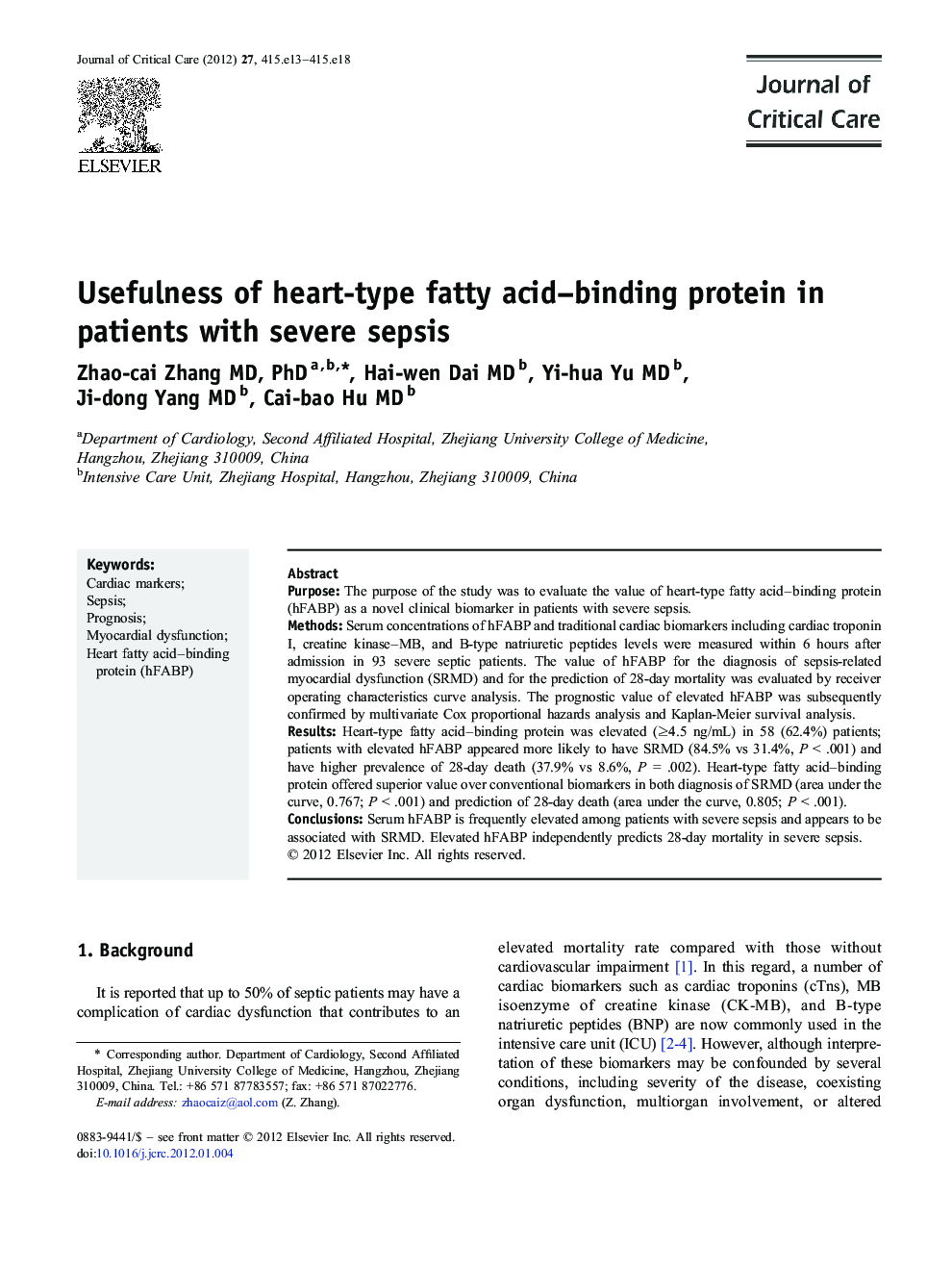| Article ID | Journal | Published Year | Pages | File Type |
|---|---|---|---|---|
| 5886960 | Journal of Critical Care | 2012 | 6 Pages |
PurposeThe purpose of the study was to evaluate the value of heart-type fatty acid-binding protein (hFABP) as a novel clinical biomarker in patients with severe sepsis.MethodsSerum concentrations of hFABP and traditional cardiac biomarkers including cardiac troponin I, creatine kinase-MB, and B-type natriuretic peptides levels were measured within 6 hours after admission in 93 severe septic patients. The value of hFABP for the diagnosis of sepsis-related myocardial dysfunction (SRMD) and for the prediction of 28-day mortality was evaluated by receiver operating characteristics curve analysis. The prognostic value of elevated hFABP was subsequently confirmed by multivariate Cox proportional hazards analysis and Kaplan-Meier survival analysis.ResultsHeart-type fatty acid-binding protein was elevated (â¥4.5 ng/mL) in 58 (62.4%) patients; patients with elevated hFABP appeared more likely to have SRMD (84.5% vs 31.4%, P < .001) and have higher prevalence of 28-day death (37.9% vs 8.6%, P = .002). Heart-type fatty acid-binding protein offered superior value over conventional biomarkers in both diagnosis of SRMD (area under the curve, 0.767; P < .001) and prediction of 28-day death (area under the curve, 0.805; P < .001).ConclusionsSerum hFABP is frequently elevated among patients with severe sepsis and appears to be associated with SRMD. Elevated hFABP independently predicts 28-day mortality in severe sepsis.
